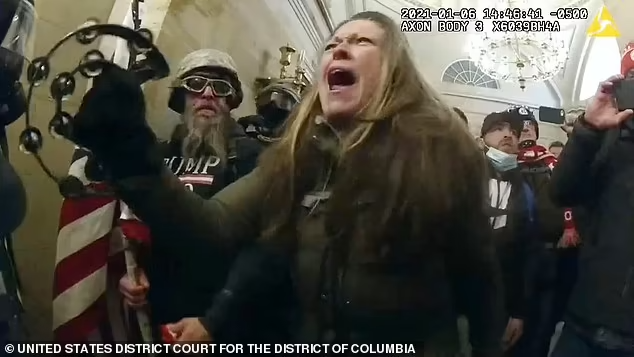Judge James Boasberg Under Fire for Double Standard in Due Process Rights
Judge James Boasberg, an Obama-appointed federal judge with a long history of controversial rulings, is once again at the center of a growing national firestorm—this time for what critics are calling a clear-cut double standard in his application of due process rights.
This week, Boasberg rejected a request from the Trump administration to lift a restraining order halting the deportation of Venezuelan nationals, including members of the violent Tren de Aragua gang, under the Alien Enemies Act. Boasberg ruled that the individuals—many of whom are illegal aliens and suspected criminals—are likely entitled to individual hearings and full due process protections.
“The Venezuelans marked for deportation are likely to win,” Boasberg wrote, siding with the plaintiffs, “because they are entitled to individual hearings.”
The Hypocrisy: January 6 vs. Criminal Foreign Nationals
This latest ruling has drawn sharp criticism from conservatives, especially in light of Boasberg’s harsh treatment of January 6 defendants, many of whom were denied basic due process protections during their prosecutions.
Take the case of Sara Carpenter, a retired NYPD officer and 9/11 first responder. Carpenter entered the Capitol and, at one point, shook a tambourine. For this, Boasberg sentenced her to 22 months in prison.
In March 2023, Boasberg denied Carpenter’s request to delay her trial to review newly released Capitol security footage from Speaker Kevin McCarthy. The judge ruled that she had not proven the footage would be exculpatory—despite its relevance to dozens of pending cases. He showed no concern for the defense’s ability to review key evidence, citing scheduling disruptions as a greater concern than potential wrongful prosecution.
In other January 6 cases, Boasberg:
- Allowed pretrial detentions with no bail for nonviolent defendants
- Refused to intervene when prisoners were placed in solitary confinement for extended periods
- Publicly referred to the Capitol riot as an “insurrection,” despite no such charges being filed under 18 U.S.C. § 2383
A Pattern of Selective Advocacy
Boasberg’s approach to illegal immigrants facing deportation stands in stark contrast to his treatment of American citizens charged with protest-related crimes. In the deportation case, he emphasized the importance of:
- Individualized due process
- Constitutional protections
- The need to check executive power
Meanwhile, those same principles were conspicuously absent from his J6 rulings, prompting accusations of political bias and selective justice.
Legal observers and critics argue that Boasberg’s posture reflects a growing ideological trend in the judiciary: extending the full weight of constitutional protections to foreign nationals, while minimizing or even denying them to domestic political dissidents.
“This is not about justice,” said one former federal prosecutor. “It’s about power—and who the judge believes deserves it.”
Who Is Judge James Boasberg?
Boasberg’s record has long raised concerns among conservatives:
- Appointed by Barack Obama in 2010
- Served as Presiding Judge of the FISA Court—notoriously silent during the FBI’s abuses of the Trump campaign
- Has ruled consistently in favor of government agencies, including shielding deep state actors from transparency lawsuits
In a 2023 speech to law students, Boasberg lamented that federal law did not allow harsher penalties for January 6 defendants and said there is still “a lot of law to be made.” His comments were interpreted by critics as a judicial endorsement of expanding prosecutorial powers against political opponents.
The Bigger Picture
Boasberg’s ruling arrives during an aggressive second-term push by the Trump administration to crack down on illegal immigration and deport individuals linked to foreign terrorist organizations and violent transnational gangs. The administration is using provisions under the Alien Enemies Act, an emergency wartime authority that allows the government to expel nationals of hostile states.
Many of those targeted for deportation are members or suspected affiliates of the Tren de Aragua gang, a violent Venezuela-based criminal syndicate linked to trafficking, murder, and extortion across Latin America and the United States.
Final Thoughts
Critics argue that Boasberg’s actions speak louder than any legal argument: When it comes to American citizens—especially those aligned with President Trump—due process is optional. But when it involves illegal aliens, even violent ones, the full weight of legal protection is extended.
This emerging two-tiered system of justice—one for Americans, another for foreign nationals—continues to erode public confidence in the judiciary, especially as activist judges assert their influence over matters traditionally reserved for elected executive leadership.
As one commentator put it bluntly:
“Boasberg may not be the leader of the executive branch—but he’s certainly acting like it.”
Whether the appellate courts will allow this ruling to stand remains to be seen. But for now, the Trump administration faces yet another judicial roadblock in its battle to restore national sovereignty and equal justice under the law.

